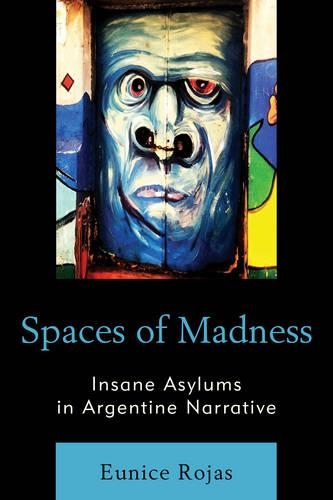
Spaces of Madness: Insane Asylums in Argentine Narrative
(Paperback)
Available Formats
Publishing Details
Spaces of Madness: Insane Asylums in Argentine Narrative
By (Author) Eunice Rojas
Bloomsbury Publishing PLC
Lexington Books
29th August 2016
United States
Classifications
Professional and Scholarly
Non Fiction
History of the Americas
860.9
Physical Properties
Paperback
226
Width 151mm, Height 231mm, Spine 17mm
349g
Description
Spaces of Madness examines the role of madness and irrationality in the works of four key Argentine novelists: Julio Cortzar, Ricardo Piglia, Juan Jos Saer, and Luisa Valenzuela. Situating these works within the deconstructivist framework provided by Michel Foucaults History of Madness, Spaces of Madness demonstrates the ways in which the perceived superiority of reason to madness is called into question in light of the challenges posed by the atrocities of Argentinas Dirty War (1976-83). The works of the authors studied in Spaces of Madness reflect at times a wave of glorification of the irrational as a consequence of a growing distrust of rationalism, and often use the concept of madness as a metaphorical representation of an artistic type of irrationality as a means of resistance against supposedly rational forces of violence and repression. The works of the four authors studied here seek to dislodge reason, sanity and rationality from their pedestal by proposing madness as a metaphor for the often artistic efforts of resistance against the violent and repressive consequences of purported rationality taken to irrational extremes.
Reviews
Rojas explores the function of medical madness, as a theme, in some Argentine prose works published between 1889 and 2011. She engages with Manuel T. Podest, Roberto Artl, Leopoldo Marechal, Julio Cortzar, Adolfo Bioy Casares, Juan Jos Saer, Aberlardo Castillo, Ricardo Piglia, and Luisa Valenzuela to dislocate reason, sanity, and rationality in opposition to madness as an artistic metaphor of resistance to oppressive military dictatorships. Even though the study covers more than a century, it focuses on works dealing with Argentina's Dirty Waralso known as Process of National Reorganization, the name used by the Argentine military government for a period of state terrorism from roughly 1974 to 1983. Building on Foucault and Derrida, Rojas looks at concepts of heterotopia, cure, and poison in studying how insanity functioned within Argentine society and literature. In addition, using as a model the Borda Hospital, the oldest and most important national psychiatric institute (which is located Buenos Aires), the book examines psychiatric hospitals and asylums and depicts them as alternative spaces of resistance against pseudo rational forces of violence and repression. Of particular value to those interested in Argentine prose. Summing Up: Recommended. Upper-division undergraduates and above. * CHOICE *
The title of this well-researched and compelling book says it all... Spaces of Madness offers a compelling conspectus of how literary and non-literary discourse has shaped the evolution of the asylum in Argentinian society. * Bulletin of Spanish Studies *
Concepts of madness constitute an ideological cluster of Argentine cultural production, and the Hospital Borda, the national psychiatric institute, is as much of an icon of Argentine society as the tango. Rojas study is the first attempt, thorough and intelligent, to explain how this is so. -- David William Foster, Arizona State University
Against a background of historical change in the nature of the Argentine mental asylum from the late nineteenth to the early twenty-first century, Rojas provides a brilliant study of the portrayal of asylums in Argentine narrative. Covering a range of authors, she shows the evolution of attempts to uncover and deconstruct the idea of 'madness' and, crucially, to use the creative imagination to expose the cruelty often underlying the notion of reason. This is essential reading on the treatment of madness and irrationality in Argentina and on the development of modern Argentine literature. -- Philip Swanson, University of Sheffield
Rojas uses the theme of madness in a way which goes beyond absurdism, in order to express Argentine writers hostility to what she calls "the harsh reality of rationality. Her investigation of the theme turns out to be surprisingly rich, emerging in a wide range of major authors. Spaces of Madness: Insane Asylums in Argentine Narrative brings a new level of sophistication to criticism of recent Argentine fiction. -- Donald Shaw, University of Virginia
Author Bio
Eunice Rojas is an assistant professor of Spanish at Lynchburg College.
